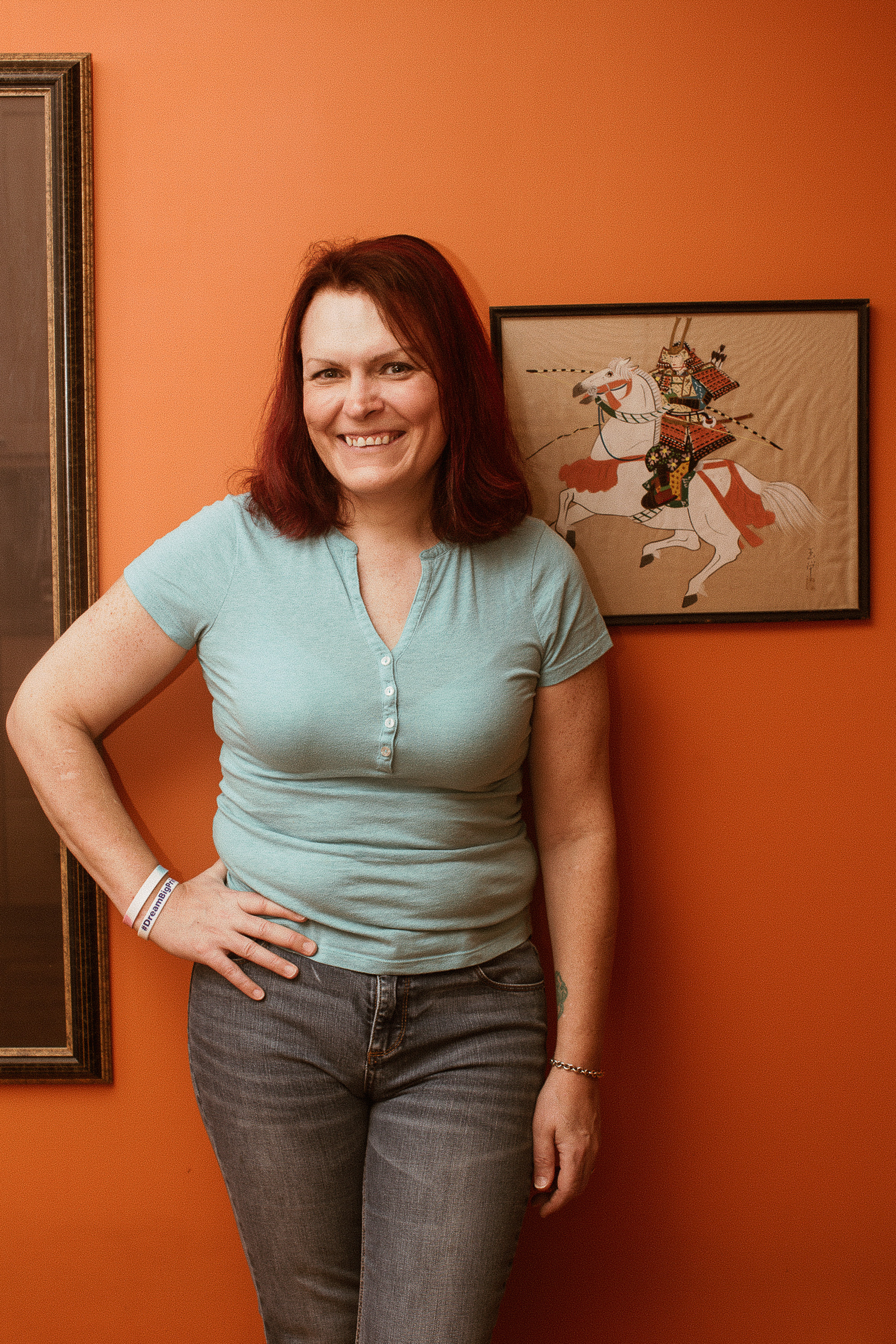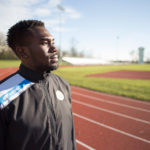Interview by Kate Schmidt
Photos by Carly Ries
I grew up outside of Sacramento and, yes, I’m an A’s fan. I do have sort of an existential issue there—I don’t know if I’m an A’s fan because my favorite color is green, or if green is my favorite color because I’m an A’s fan.
I went to the University of Chicago anticipating or hoping that I might someday become a professor of history. I hadn’t yet learned the life lesson that if you want to teach people about the Diet of Worms, you’ve only predicted what you’re going to live on.
But I love history as a subject. I think it is the mother of all the social sciences, the one that combines all the benefits of each one of them in a way that essentially allows us to explain our world through the experiences of the people who lived before us—and of course it dovetails very nicely with baseball, since we love our history in baseball. But it’s also something where it can be a pretty tough racket to make a living in.
Working [at the Oriental Institute] was in some sense the perfect starter job. I don’t have an archaeology background, but I did have Chicago Manual of Style training, and so I was there as both an assistant editor and as kind of a business manager of the publishing house. And you’re in a beautiful building, on a beautiful campus, with a view of Rockefeller Cathedral right out the window—because we didn’t have a cubicle. [Laughs.] But it also had flexible hours, so I could go to grad school, and the fact that I could hold that job, and get my MA, and launch BP, all at the same time . . . I was a busy bee in the 90s.
Part of me will always look at my time at Baseball Prospectus as the coolest thing I was ever involved in, because it still does what it did when we founded it 20 years ago. I’ve always likened it to Saturday Night Live—it’s a rotating cast of talent, where the people there get to take the show, as it were, the direction they want to go, they do the things they’re good at, and show off their abilities, and it ends up being a kind of seedbed for writers, analysts, talent.
I mean, look at [former BP staffer] Nate Silver’s FiveThirtyEight venture. That’s entirely about taking some of the things that maybe we thought we might take for granted and applying it to the wider world, and doing the kind of journalism that I think I would love to see more journalists thinking of, which is that you have to speak stats, you have to speak in the language of information, you have to be able to master the numbers. When I get particularly high-blown, I’ll say BP was essentially founded on Age of Reason principles and has always operated from them.
When I came out in 2003, I did it my own way. I didn’t have a press conference and announce that I was out. [Laughs.] I didn’t want to become known as “the transsexual sportswriter.” I’m a sportswriter; I just happen to be transsexual. I’m not afraid of that, I’m totally happy to talk about that, but my day job . . . I am an out-loud trans person, but I’m also a working professional in sports. I got lots of infotainment television offers, and it was like, “No, because I know exactly how you’ll talk about me and how you’ll position the segment. I am not here to be your freak of the week.” From my perspective, my focus was on coming out and living happily ever after. I didn’t want the 15 minutes of fame; I wanted the next 15 years and more.
As I got comfortable with being out, and having, essentially, achieved myself, I got more involved, working [at the Center on Halsted], working with the folks at [the safe-space community group] Genderqueer Chicago. My engagement is really about making sure that trans people get full civil equality. We’re not asking for anything more, we’re not asking for anything different, we’re just asking for the same basic deal as everybody else. And you’d think that would be really noncontroversial, but for some people—some people really feel that’s a problem.
I wish I could sugar-coat it, but there’s no doubt whatsoever that what the next four years holds is frightening. I mean, if you talk about what having fundamentalist Christians in charge of the Department of Education means for, not just science education, but for the bullying of LGBT kids in school . . . We’re talking about physical danger to kids. And when I think about the violence that already gets directed, particularly at trans women of color, not just in this city but across this country . . . If anybody expects that the Department of Justice under Jefferson Beauregard Sessions III is going to do the right thing, well, I want to be that kind of optimist. But so much of the basis of equality that trans people achieved under the Obama administration relied upon executive orders or departmental policy. And all of that’s going away. It’s a dangerous and scary time.
My wife, living in Chicago for seven-plus years has been the longest stretch that she’s lived anyplace in her life, and for her, like me, it’s home. I love the lake. The two teams. My neighborhood is everything I would ever want from a neighborhood—everything is everybody-friendly in Rogers Park, across every conceivable line of diversity that there is. And then to be able to get to Wrigley in like 25 minutes. Does it get any better than this?
It’s hard to give up, but, you know, when ESPN comes a-calling, you say yes. Still, if I had the freedom to choose where to live, I would choose Chicago. It’s not like I have some fantasy of, like, I wanna live on an island paradise. No, I wanna live in Chicago. v


![[photo of sir fraser stoddart]](https://people.chicagoreader.com/wp-content/uploads/2016/12/Sir_Walter_Fraser-10-150x150.jpg)
